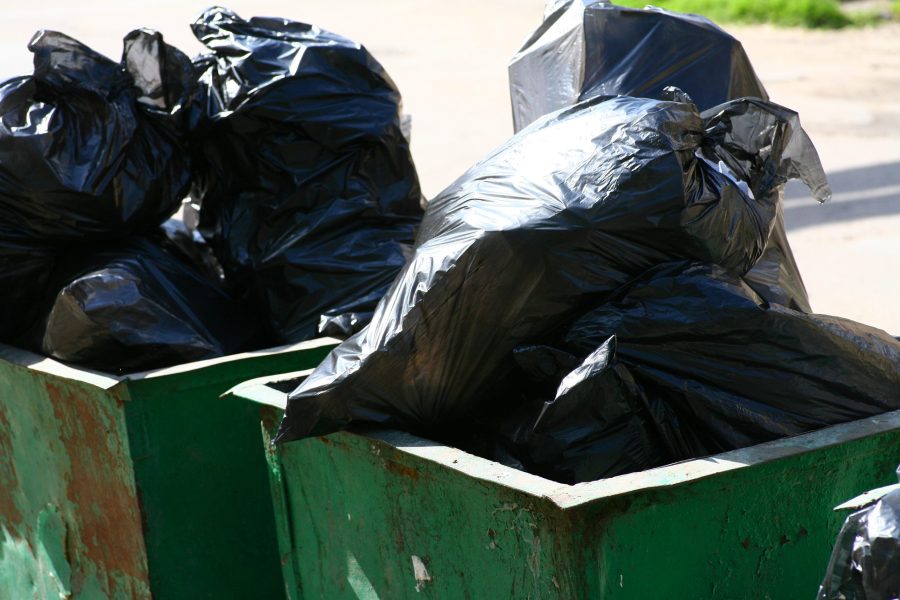

Pressure-washing trash enclosures and trash enclosure areas is more than just about curb appeal; it’s a practical, health-minded, regulatory, and operational necessity for commercial properties.
Business owners and property managers who oversee multi-tenant buildings, retail centers, or apartment complexes should understand the importance of routine cleaning of dumpster pads and enclosures, what it protects against, and how to perform it in a manner that complies with environmental and workplace regulations.
Trash enclosures receive concentrated loads of organic waste, liquids, food residue, oils, and packaging debris. Over time, that material builds up on concrete and masonry surfaces. These then create foul odors, staining, and surfaces that attract pests and become slippery or unsanitary.
While routine sweeping helps, pressure washing provides a deeper clean that removes residues, biofilms, and grease that simple dry cleaning cannot. Additionally, properly managed washing reduces ongoing maintenance costs and helps maintain a professional property image.
Here are eight reasons to consider having your trash bins cleaned by pressure washer.
Organic waste residues support bacterial growth and produce persistent odors that affect tenants, customers, and staff. By removing those residues, you can reduce the sources of odors and lower the potential for disease-causing surface contamination.
Food waste and standing liquids in trash enclosures attract rodents, flies, cockroaches, and other pests. Regular pressure washing, combined with removing food sources and sealing entry points, is a recognized component of pest-management programs used in institutional and commercial settings. Besides, clean enclosures make monitoring and control easier and more effective.
Grease, oil, and organic films make surfaces slippery and can cause long-term staining of concrete and masonry. With high-pressure cleaning, you remove contaminants that can lead to spalling, staining, and concrete deterioration. You also reduce repair costs over time. Routine cleaning likewise extends the life of the enclosure surface.
Many jurisdictions prohibit allowing wash water to flow into storm drains because it can carry pollutants into creeks and rivers. Still, the best management practices (BMPs) for pressure washing help properties meet local and federal stormwater regulations. This includes capturing and disposing of wastewater to sanitary sewer where allowed, using berms or containment, and avoiding certain detergents.
Following BMPs also avoids fines and protects local water quality.
Employers and property operators have sanitation responsibilities under OSHA and related standards. Clean, well-maintained waste areas reduce hazards for custodial staff and refuse collectors, supporting safer working conditions. With a documented cleaning schedule, you can therefore demonstrate proactive, effective management.
Persistent odor or pest problems are top drivers of tenant dissatisfaction in retail and multifamily properties. With regular cleaning, you lower the frequency of complaints and the administrative time spent addressing tenant concerns. As a result, you protect occupancy and improve tenant relations.
Clean trash enclosures improve the overall perception of a property. Especially in retail and mixed-use settings, buyers, customers, and prospective tenants associate cleanliness with safety and value.
Oil, chemical spills, or improperly handled wastes that accumulate in enclosures can create regulatory exposure. Through proactive cleaning and immediate remediation of spills, you can reduce long-term liability and demonstrate compliance with waste-handling guidance.
In addition, state and local agencies recommend timely cleanup to avoid contamination and enforcement actions.
Finding the Right Pros for Pressure Washing Trash Enclosures
When hiring a commercial pressure washing company, it’s important to evaluate safety, compliance, and environmental responsibility.
Selecting a properly trained, compliant, and experienced provider helps protect your property, meet environmental standards, and maintain a safe and professional business environment.
Keeping trash cans and enclosures clean through pressure washing is a straightforward investment in public health, safety, compliance, and property value. When performed with appropriate containment and disposal practices, pressure washing removes odor sources and residues, reduces pest pressure, and extends the life of surfaces. Moreover, it helps property managers meet environmental and workplace obligations.
Prestige is committed to helping businesses achieve their cleanliness goals in Los Angeles and Orange County. For professional commercial cleaning services, call us at 714 224 0301 or email info@prestigepropertyservices.com for inquiries.
"*" indicates required fields